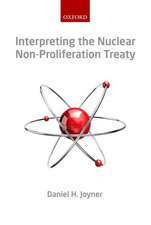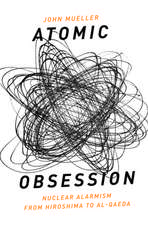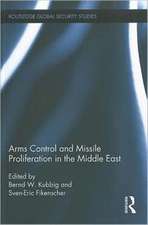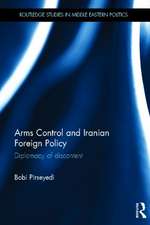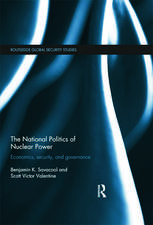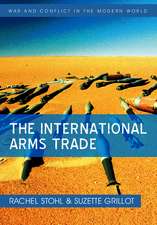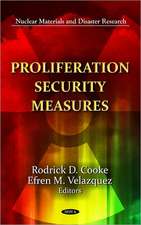The Wages of Peace: Disarmament in a Small Industrialized Economy: International Peace Research Institute, Oslo (PRIO)
Autor Nils Petter Gleditsch, Adne Cappelen, Olav Bjerkholten Limba Engleză Hardback – 7 aug 1994
This book represents the most detailed study of the economic effects of conversion for any country. It breaks new ground in using planning models to examine the environmental effects of disarmament.
Based on a decade of studies, this book examines the global, national and local effects of disarmament, focusing on Norway. The findings are cautiously optimistic. The most important peace dividend is peace itself, but economic gains may be expected.
Preț: 1263.26 lei
Preț vechi: 1540.55 lei
-18% Nou
Puncte Express: 1895
Preț estimativ în valută:
241.75€ • 262.51$ • 203.07£
241.75€ • 262.51$ • 203.07£
Carte tipărită la comandă
Livrare economică 23 aprilie-07 mai
Preluare comenzi: 021 569.72.76
Specificații
ISBN-13: 9780803977501
ISBN-10: 0803977506
Pagini: 224
Dimensiuni: 156 x 234 x 14 mm
Greutate: 0.5 kg
Ediția:1
Editura: SAGE Publications
Colecția Sage Publications Ltd
Seria International Peace Research Institute, Oslo (PRIO)
Locul publicării:London, United Kingdom
ISBN-10: 0803977506
Pagini: 224
Dimensiuni: 156 x 234 x 14 mm
Greutate: 0.5 kg
Ediția:1
Editura: SAGE Publications
Colecția Sage Publications Ltd
Seria International Peace Research Institute, Oslo (PRIO)
Locul publicării:London, United Kingdom
Recenzii
`Stimulating and useful. It is both broad in scope, reviewing much international literature... well discussed and reasoned. There are ample tables and figures... A good work, many readers will find [the book] thought-provoking and stimulating' - Mershon International Studies Review
`The authors have been studying the economic impact of military spending for many years, and this book is the culmination of their work. Although the main conclusion is unlikely to be a surprise, the contribution of the book comes at a number of other levels. Answering the substantive question, the effect of defence cuts on Norway, allows the authors to focus on the results of a large international literature, advocate a model-based methodology and provide an exemplar for similar studies in countries where the problem is more pressing.... The authors consider a wide variety of possible consequences, including effects on the environment and global development. They finish with a discussion of Norwegian security decisions.... This work is an excellent guide for other country studies on the effects of disarmament' - Journal of Peace Research
`The authors have been studying the economic impact of military spending for many years, and this book is the culmination of their work. Although the main conclusion is unlikely to be a surprise, the contribution of the book comes at a number of other levels. Answering the substantive question, the effect of defence cuts on Norway, allows the authors to focus on the results of a large international literature, advocate a model-based methodology and provide an exemplar for similar studies in countries where the problem is more pressing.... The authors consider a wide variety of possible consequences, including effects on the environment and global development. They finish with a discussion of Norwegian security decisions.... This work is an excellent guide for other country studies on the effects of disarmament' - Journal of Peace Research
Cuprins
The Burden of Arms
The Economics of Military Spending
The Norwegian Military Sector
National Conversion
Global Conversion
Local Conversion
Defense Without Threat?
The Economics of Military Spending
The Norwegian Military Sector
National Conversion
Global Conversion
Local Conversion
Defense Without Threat?
Descriere
With the end of the Cold War, many nations have set about cutting their military spending, and visions of a large `peace dividend' have emerged. Yet, even today, the arms race remains one of the major projects of humankind, and one of the most unproductive. The Wages of Peace explores some of the consequences and opportunities stemming from the resulting peace dividend.
This book charts a middle course between extravagant claims about the improvements in welfare, development or the environment which may be funded by the peace divided, and dire assessments of how militarized economies will collapse as a result of disarmament spiced with warnings that the savings have already been squandered.
This book
This book












